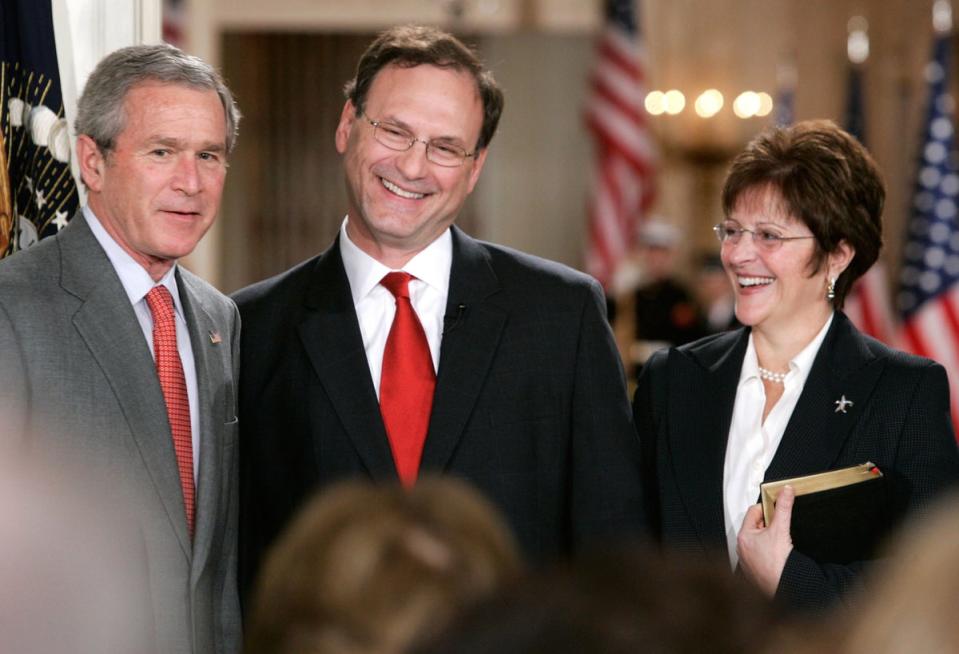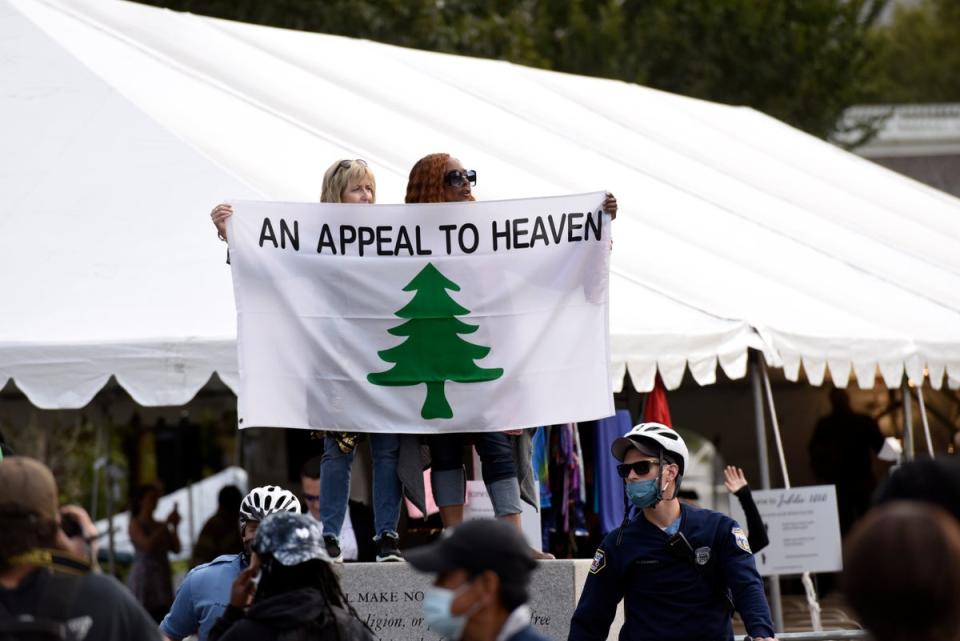Samuel Alito blames wife again as he rejects calls to step aside over upside down flag flap
Conservative Supreme Court Justice Samuel Alito will not recuse himself from upcoming cases involving January 6 rioters or Donald Trump despite recent controversies over two controversial, political flags flown at his homes.
In a letter, dated Wednesday and addressed to more than 30 members of Congress, Justice Alito wrote that he will not recuse himself from case,Trump v US - which will determine if the former president has criminal immunity - or Fischer v US examining if January 6 rioters were correctly charged with a specific crime.
Earlier this month, the New York Times revealed that an upside-down American flag was flown at Justice Alito’s Virginia home following the 2020 presidential election - a symbol used by the “stop the steal” movement supporting Mr Trump’s false claims of election fraud.
It was subsequently revealed that an “Appeal to Heaven” flag was flown at Alito’s New Jersey vacation home, a symbol carried by rioters on January 6.

In Wednesday’s letter, Justice Alito once again blamed his wife, Martha-Ann Alito, for the incident as he had done in the immediate aftermath of the controversies.
“My wife is fond of flying flags. I am not,” Justice Alito wrote. “She was solely responsible for having flagpoles put up at our residence and our vacation home and has flown a wide variety of flags over the years.”
Citing the non-binding Supreme Court code of ethics, Justice Alito argued in the letter that he was not required to disqualify himself because “this event does not meet the applicable standard for recusal.”
Justice Alito assured those he had “nothing to do whatsoever” with the flags, and was unaware the upside-down American flag was being flown. He wrote that when he asked his wife to take it down, she “refused.”
“My wife is a private citizen, and she possesses the same First Amendment rights as every other American. She makes her own decisions, and I have always respected her right to do so,” he wrote.
Justice Alito claimed that his wife flew the flag while “greatly distressed” about a “nasty neighborhood dispute”. He said a man living down the street displayed a sign that directly “attacked” his wife and berated her in front of him – using “the vilest epithet that can be addressed to a woman.”

“She has made many sacrifices to accommodate my service on the Supreme Court, including the insult of having to endure numerous, loud, obscene, and personally insulting protests in front of our home that continue to this day and now threaten to escalate,” Justice Alito wrote.
The judge then explained that the “An Appeal to Heaven” flag was just one of the “wide variety of flags” his wife has flown over the years.
These include a flag thanking veterans, college flags, flags supporting sports teams, state and local flags, flags of nations, flags of places they visited, seasonal flags and religious flags, he wrote.
Justice Alito again also insisted he did not know what the “An Appeal to Heaven” flag meant or that it had a connection to the “Stop the Steal” movement.
For these reasons, Justice Alito wrote that he does not need to recuse himself from either case.
Democrats in the Senate and House had called for Justice Alito to recuse himself. Senate Judiciary Committee Chairman Dick Durbin and Senator Sheldon Whitehouse sent Chief Justice John Roberts a letter last Friday asking him to push Justice Alito to recuse himself from cases.
They argued that Justice Alito “actively engaged in political activity, failed to avoid the appearance of impropriety, and failed to act in a manner that promotes public confidence in the impartiality of the judiciary.”

